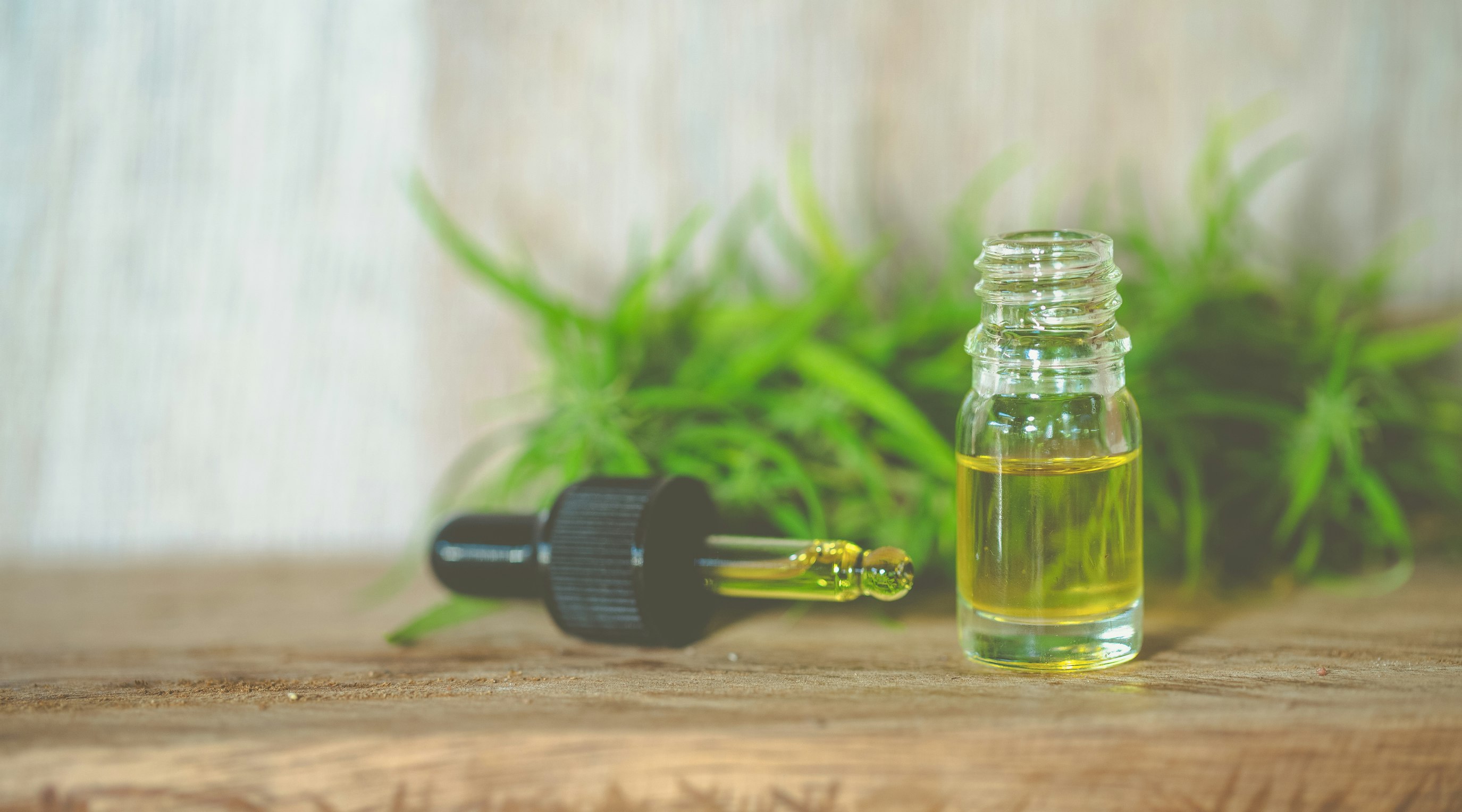Choosing the ideal strength of CBD oil for fibromyalgia
8 min read
Kerry Charron
Fibromyalgia affects over 1.5 million people in the United Kingdom. It is a poorly understood disorder that causes intense chronic pain, overwhelming inflammation, and heavy fatigue among a range of other symptoms. Although there are various conventional pharmaceutical treatments for fibromyalgia, their effectiveness is sometimes less than satisfactory, and certain options are burdened with significant side effects.
Fortunately, there are now a range of complementary treatment options available that can help manage the symptoms of fibromyalgia, including medical cannabis, and specifically CBD oil. But, with so many CBD options available “over the counter”, how do you know which one is right for you?
In today's article, we will discuss the most important factors to consider when selecting the ideal strength of CBD oil for fibromyalgia, and break down everything there is to know about CBD oil.
Contents
A spotlight on fibromyalgia
Fibromyalgia is a chronic disorder that affects the musculoskeletal system. It is characterised by widespread pain, deep and long-lasting inflammation, and sometimes overwhelming fatigue. The cause of the condition remains unknown, but there are many environmental factors that can trigger or exacerbate it, including stress, trauma, and infection. Researchers believe that there may be a genetic component to the disorder as well.
The pain associated with fibromyalgia is unique and can range from mild and passing to severe and relentless. It usually impacts the entire body, with common locations including the neck, back, shoulders, and hips. There can also be other associated symptoms such as sleeplessness or poor sleep quality, low mood, and anxiety.
What is CBD oil?
CBD, or Cannabidiol, is the one of the over 110 cannabinoids that have so far been isolated from the cannabis sativa L. plant, and one that comes with zero intoxicating properties, unlike THC. It does not contain any of the intoxicating properties associated with THC (Tetrahydrocannabinol), making it an attractive treatment option for those looking to benefit from medical cannabis without its psychoactive effects.
CBD oil is made from the extracted CBD molecules contained within cannabis (although more often hemp), and is often rich in other therapeutic cannabinoids such as CBN and CBG, and also terpenes (the aromatic compounds that give plants their unique smell). It can come in various concentrations, and three main subtypes.
Full-spectrum CBD oil
This type of CBD oil contains all the therapeutic compounds found within cannabis, including trace amounts of THC. It is a popular choice among those looking to benefit from the “entourage effect”, where multiple cannabinoids and terpenes work together synergistically to maximize the beneficial properties of CBD. Full-spectrum CBD oils must legally contain less than 0.2% THC (or less than 1 mg per container) here in the UK to be legal for the consumer market.
Broad-spectrum CBD oil
Broad-spectrum CBD products retain most of the compounds found in full-spectrum products, but with the THC component completely removed. This makes it an ideal choice for those looking to benefit from CBD without any trace amounts of THC entering their body.
CBD Isolate
CBD isolate is the most refined form of cannabis extract and contains a virtually pure CBD molecule. While there are some cases where CBD isolate is beneficial, most patients will benefit more from full-spectrum or broad-spectrum CBD products, as these contain other potentially therapeutic molecules.
How does CBD oil interact with the human body?
CBD, and other cannabinoids, interact with the body's endocannabinoid system (ECS). The ECS is an extremely important regulatory network that consists of specific cannabinoid receptors, and it is the largest and most widespread neurotransmitter network in the body. It is responsible for a range of physiological processes, such as pain modulation, inflammation control, appetite regulation, and more.
When CBD binds to these receptors, it can potentially help support a variety of bodily functions, including pain regulation and inflammation reduction.
By interacting with the ECS receptors (mostly the CB2 receptor), CBD has been shown to reduce heavy inflammation, reduce chronic pain, improve sleep quality, and support a balanced mood. CBD also has the ability to up-regulate the production of serotonin which may also help with anxiety and mood issues, as well as being able to reduce the enzymatic breakdown of our own endocannabinoids, leading to longer receptor stimulation.
A growing number of research studies show that CBD oil has a very high safety profile, and can be taken at relatively high doses for extended periods of time, making it a reliable and easy to administer option for fibromyalgia patients.
Finding the right CBD strength for fibromyalgia
Before we go into any specific dosing recommendations regarding CBD and fibromyalgia, it is essential that we first point out that, when considering if CBD is the right option for you, you first seek the guidance and advice of a doctor. Not any old doctor, though.
Here in the UK, only specialist doctors have the ability to prescribe medical cannabis, and only they will be able to advise you on the correct dosing.
Why?
Well, for a few key reasons.
First up, every individual has a different endocannabinoid system. This means that the same dose of CBD won't necessarily have the same effects on everyone. A set dosage may work well for one patient, while another will require a different strength to achieve similar results.
Secondly, it is important to remember that CBD oil can interact with other medications and treatments. It's essential to understand how this could potentially affect any other treatments you are currently taking in order to get the best out of your CBD oil treatment.
Finally, it is also critical to remember that there’s no single ideal strength or dosage when it comes to CBD oil for fibromyalgia. As your body gets used to CBD, it will begin to build up what is known as a ‘tolerance’, and so the optimal dosage can change over time.
With that said, there are some guidelines that we can look over to give you a clearer idea of what dose range may be right for you.
When it comes to fibromyalgia, the vast majority of patients benefit from what is considered to be a 'high' dose.
Typically, a 'high' dose of CBD will range from 100 mg to 150 mg per day. In some cases, doses as high as 200 mg per day have been reported to help significantly with symptoms of fibromyalgia and chronic pain.
But it is not recommended to just dive into a dose this high. It is always best to slowly work your way up to a higher dose as you become familiar with how your body responds.
Starting with a 'low' dose of anything between 5 mg to 25 mg per day, and then slowly increasing this amount each week until you find the right dose that works for you, is usually a safe and effective approach.
It is also worth noting that the effects of CBD oil can take between one and three hours to be felt, depending on the route of administration. For the most rapid onset of effects, vaporised CBD oil (or CBD dominant dried flower) is the best option. If the idea of inhaling your medication doesn’t appeal, then CBD oil taken sublingually (under the tongue) is the next best option, as it will be quickly absorbed into the bloodstream.
Some patients prefer to take CBD edibles, but it is worth noting that edibles can take anywhere between 30 and 180 minutes to be felt and that they are far less bioavailable than the other routes of administration.
Are there any side effects to taking CBD?
The good news is that, when taken in sensible doses and administered responsibly, CBD oil is generally very safe and has a low risk of side effects.
Common side effects reported with CBD use include dry mouth, drowsiness, fatigue, and light-headedness. These are usually mild, but can be alarming to first-time patients. Gastrointestinal discomfort has also been reported, but this is often transient and disappears over time.
It is also important to note that, while CBD is widely regarded as safe for human consumption, it can still interact with certain medications. If you are taking any other medications or supplements, it is always best to consult your doctor before starting a course of CBD oil.
Conclusion
CBD oil is a great option for those with fibromyalgia who are looking to manage their symptoms and improve their quality of life. With its strong anti-inflammatory, analgesic, and anxiolytic effects, CBD can help reduce heavy inflammation, improve sleep quality, regulate pain levels, and even provide an overall sense of wellbeing.
It is always best to start on the lowest possible dose, and then gradually increase it each week until you find a dose that works for you. There may be some side effects associated with CBD administration, but these are generally mild and diminish over time.
Ultimately, it is important to remember that everyone’s endocannabinoid system is different, so finding the correct dosage size may take a little trial and error. However, with the proper guidance from a medical professional, those with fibromyalgia can confidently take CBD oil to help manage their symptoms and improve their quality of life.
Releaf understands that even considering medical cannabis treatment for fibromyalgia can be intimidating – that’s why we offer tailored monthly packages, specialist consultations for medical cannabis, and our unique medical cannabis card to give you the peace of mind that your treatment is protected, all based on your medical cannabis prescription.
Share article
Did you like this article?
It is important to seek medical advice before starting any new treatments. The patient advisors at Releaf are available to provide expert advice and support. Alternatively, click here to book a consultation with one of our specialist doctors.
Elevate your wellness with medical cannabis
Get comprehensive care, convenience, and confidence with an all-in-one treatment plan.
Am I eligible?Authors
Kerry, with experience as a medicinal cannabis cultivation technician and expertise in business licensing applications, is passionate about developing educational content and advocating for better access to medical cannabis worldwide.
Editorial Policy
All of our articles are written by medical cannabis experts, guided by strict sourcing guidelines, and reference peer-reviewed studies and credible academic research. Our expert clinical team and compliance specialists provide valuable insights to ensure accuracy when required. Learn more in our editorial policy.
Need more help?











